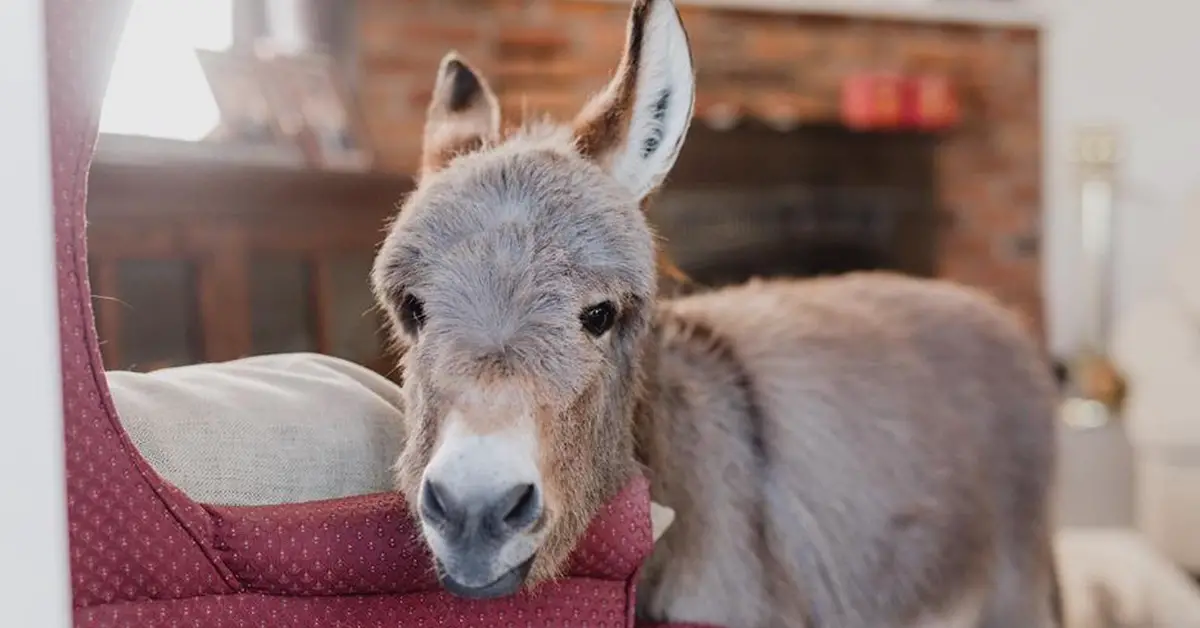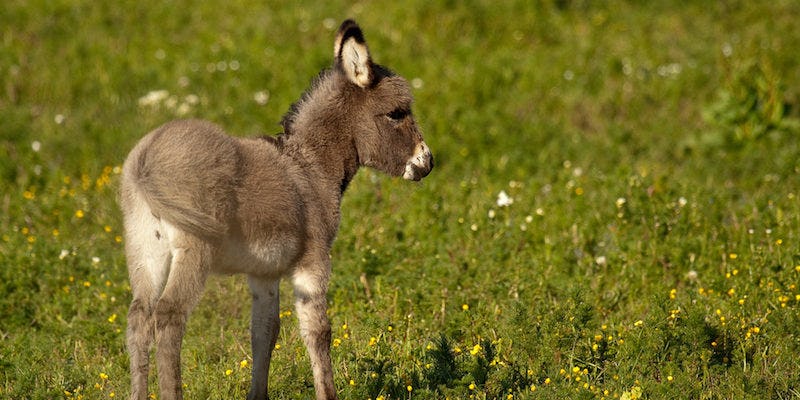

In ancient Egypt, female donkeys were kept as dairy animals because donkey milk is higher in sugar and protein than cow's milk. 2675 to 2565 B.C.E.) indicate that ownership of donkeys was a status symbol and the elite of society may have owned herds of over a thousand donkeys. The donkey was first domesticated about six thousand years ago. Domesticated donkeys in the United States are not grouped by breed, but by type. At the Kids' Farm, donkeys receive mixed grass hay and herbivore feed twice daily.Īny donkey regardless of size or color is Equus asinus. Because donkeys are prone to weight gain, their feed should be closely monitored. If only poor quality hay is available, it should be supplemented with a commercial feed.

Their primary food is grass, but they also graze other shrubs and desert plants. Miniature donkeys require good quality hay and fresh, clean water.

Fat donkeys will develop a "crest," or fat roll, on their necks that will be there for life once it develops. Because of this, owners must be careful that they do not overfeed their donkeys. Donkeys do not ruminate like cattle, but use hindgut fermentation to digest their food.ĭonkeys are considered "easy keepers," meaning they utilize their feed very efficiently and can survive on good quality hay alone. Like many other grazing animals, they grasp the plant first with their muscular lips, pull it into their mouth and then tear it off with their teeth. Other sensitive areas to touch are the withers, ribs, flanks and legs.ĭonkeys are grazing herbivores with large, flat-surfaced teeth adapted for tearing and chewing plant matter. The most sensitive areas are around the eyes, ears and nose.

Consequently, touch is the donkey's most important sense for responding to cues of their handler. They have a well-developed sense of touch. Donkeys use their sense of smell to determine if something is life-threatening or friendly, to locate food, and to identify each other, as well as to identify humans. However, it is generally agreed that it is somewhat well developed. There is not much known about donkeys' sense of smell. A donkey's long ears have an excellent blood supply, which is a desert adaptation for cooling the body. Their hearing is acute and the ears can move independently to locate the source or general direction of sounds. There is a blind spot directly in front of the donkey and one directly behind. They have both monocular and binocular vision, which allows them to see two fields of vision at once (monocular) or to focus on the same thing with both eyes at the same time (binocular). The hair coat is shed out much later in the summer than that of the horse and serves to protect the donkey from the weather and flies.ĭonkeys' eyes are at the sides of their heads, giving them a wide field of vision. The hair ranges from flat, to curly, to long and shaggy, and in texture from smooth to wiry. They have an erect mane and lack the forelock (bangs) and prominent withers (the highest part of the back at the base of the neck) of a horse. In addition, we’ve excluded a couple heavy-hitters like Veep and Ted Lasso, which don’t quite stick to one core setting, or follow the typical workplace comedy formula.Donkeys differ from horses in shape and are characterized by their large head, long ears and cow-like tail. productions (apologies to the OG Office and The IT Crowd). Here, we’ve included old school fare like Taxi and Cheers, and ranked them accordingly alongside newer selections like Parks and Recreation, Abbott Elementary and Scrubs, to name a few.īut before you start scrolling, a couple of notes: For this particular list, we only considered U.S. Our top picks come from a wide variety of networks (Comedy Central, The WB, HBO, Adult Swim and more), and cover fictional newsrooms, schools, bars, government departments and, of course, a certain paper company that holds a special place in our hearts.
Tiny time donkey tv#
We’ve cherry-picked our absolute favorites starting from the ’70s on up through this past TV season - and it was not easy. Welcome to TVLine’s inaugural ranking of the best workplace comedies of all time. Dealing with impossible coworkers can be hell, but watching others struggle to get along in the workplace is oftentimes comedy gold.


 0 kommentar(er)
0 kommentar(er)
